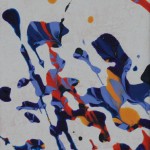March29
 The media has portrayed Autism as a disease, the DSM has defined it as a disorder, many in the ‘Autistic Pride’ movement call it a condition. But is there really so much difference between these terms? I thought I’d explore some of these definitions: Read the rest of this entry »
The media has portrayed Autism as a disease, the DSM has defined it as a disorder, many in the ‘Autistic Pride’ movement call it a condition. But is there really so much difference between these terms? I thought I’d explore some of these definitions: Read the rest of this entry »
March28
 There’s vast online gatherings of enthused, sometimes fervent, even openly militant, self identified ‘Autistics’ who feel that Autism is a new ‘race’. Read the rest of this entry »
There’s vast online gatherings of enthused, sometimes fervent, even openly militant, self identified ‘Autistics’ who feel that Autism is a new ‘race’. Read the rest of this entry »
March20
 ADAM FEINSTEIN:
ADAM FEINSTEIN:
Hi Donna, sorry to trouble you, but I am currently reading a 2005 article by Brigitte Chamak about the autobiographical writings of people with autism and she contrasts your position and that of Temple Grandin and Jim Sinclair. Chamak says that Temple sees her particular gifts as inextricably linked to her autism and quotes Sinclair as saying that his autism is a “way of being … It is not possible to separate the autism from the person.” Read the rest of this entry »
March17
 Having had my fair share of stalkers, trolls, conspiracy lovers, I loved this. Of course just posting it likely to bring the infestation out of the woodwork where haters fester but it was a great clip. Here’s another one too. Read the rest of this entry »
Having had my fair share of stalkers, trolls, conspiracy lovers, I loved this. Of course just posting it likely to bring the infestation out of the woodwork where haters fester but it was a great clip. Here’s another one too. Read the rest of this entry »
March14
 For each of us on the spectrum the social communication issues are different… I’m face blind, didn’t process faces and bodies as a whole or get simultaneous processing of self/other until my 30s, am still context blind, 30% meaning deaf (at best), my prosody is sometimes odd because my word retrieval is sometimes mechanical and I have to try harder to keep my syntax intact…. and so my social style has remnants of these things… it makes me socially ‘klunky’, ‘out of sync’, even though I’m warm, friendly, empathic, highly sensing. Read the rest of this entry »
For each of us on the spectrum the social communication issues are different… I’m face blind, didn’t process faces and bodies as a whole or get simultaneous processing of self/other until my 30s, am still context blind, 30% meaning deaf (at best), my prosody is sometimes odd because my word retrieval is sometimes mechanical and I have to try harder to keep my syntax intact…. and so my social style has remnants of these things… it makes me socially ‘klunky’, ‘out of sync’, even though I’m warm, friendly, empathic, highly sensing. Read the rest of this entry »
February14
 I was asked re methylated B12 shots. Read the rest of this entry »
I was asked re methylated B12 shots. Read the rest of this entry »
February6
 It is natural for children to dissociate before the age of 5 so spotting Dissociative Identity Disorder (DID) in children is difficult. Most adults diagnosed with DID began splitting around age 4-6 with others as young as 2 and as old as 10 when they first begin splitting and developing alters. Read the rest of this entry »
It is natural for children to dissociate before the age of 5 so spotting Dissociative Identity Disorder (DID) in children is difficult. Most adults diagnosed with DID began splitting around age 4-6 with others as young as 2 and as old as 10 when they first begin splitting and developing alters. Read the rest of this entry »
February6
 An interesting article on recent findings with regards to False Memory Syndrome. Read the rest of this entry »
An interesting article on recent findings with regards to False Memory Syndrome. Read the rest of this entry »
January22
 Before I became an autism consultant in 1996, I had heard about a teen and a young adult who both ‘outgrew’ their autism by age 5. It was around 1992, before Aspergers had become a diagnosis in the English speaking world. Both had been formally diagnosed as ‘classically autistic’, one in the late 1960s, one in the late 1970s, both in an era where autism was deemed rare, 4 in 10,000, where one had to be quite recognizably autistic to get a diagnosis, far more so than today with a rate of 1 in 150 where almost any avoidant, solitary, developmentally delayed child with delayed speech who stims is diagnosed with ASD. Read the rest of this entry »
Before I became an autism consultant in 1996, I had heard about a teen and a young adult who both ‘outgrew’ their autism by age 5. It was around 1992, before Aspergers had become a diagnosis in the English speaking world. Both had been formally diagnosed as ‘classically autistic’, one in the late 1960s, one in the late 1970s, both in an era where autism was deemed rare, 4 in 10,000, where one had to be quite recognizably autistic to get a diagnosis, far more so than today with a rate of 1 in 150 where almost any avoidant, solitary, developmentally delayed child with delayed speech who stims is diagnosed with ASD. Read the rest of this entry »
 The media has portrayed Autism as a disease, the DSM has defined it as a disorder, many in the ‘Autistic Pride’ movement call it a condition. But is there really so much difference between these terms? I thought I’d explore some of these definitions: Read the rest of this entry »
The media has portrayed Autism as a disease, the DSM has defined it as a disorder, many in the ‘Autistic Pride’ movement call it a condition. But is there really so much difference between these terms? I thought I’d explore some of these definitions: Read the rest of this entry »








